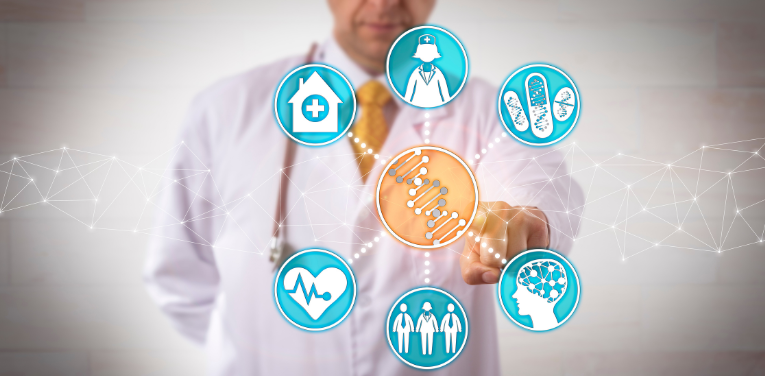
Intro to Integrated Healthcare
Integrated healthcare is when a higher level of collaboration and communication is reached, often through the implementation of new technologies [1]. Furthermore, patients often need multiple team members from their care team to collaborate on the best course of action regarding their treatment plans. This makes integrated healthcare even more crucial so that a patient’s social and biological needs are met [1]. Integrated care also focuses on seamless delivery of care services across multiple providers. Ultimately, integrated care aims to improve patient experiences, outcomes, and satisfaction by optimizing resources and collaboration.

Challenges that Hinder Successful Integrated Healthcare Solutions
Unfortunately, many challenges exist that hinder the successful integration of healthcare solutions. These barriers are often due to inefficiencies in data integration and the lack of effective collaboration tools. First, EHR interoperability challenges inhibit integration due to the lack of standardization [2]. This means that data may be stored in different formats and require conversions before they can be used by other systems [2]. Moreover, inconsistent data quality may impede the seamless integration of data into user applications [2]. This results in different interpretations of raw data being made which can result in negative patient outcomes. Another barrier to integrated care is privacy concerns about data in motion and stored data. The rigorous requirements for privacy and compliance can hinder the easiness of sharing data, and may also require more complicated solutions to ensure unwanted sources don’t access private patient data [2].

Additionally, other barriers to successful integration revolve around workflows that are unable to effectively coordinate care. For instance, different healthcare organizations often have different processes when it comes to care delivery. This makes it more difficult to collaborate care amongst different workflows. Furthermore, new technologies often come with the need for more training so that technology is adopted seamlessly. Healthcare staff may be more resistant to these new systems and protocols, which can disrupt the successful integration of healthcare. Overall, common barriers to the successful integration of care revolve around the lack of standardization, inconsistent data management, and resistance to new processes.
Benefits of Achieving Successful Healthcare Integration
The overall goal of healthcare integration is to establish a more collaborative and effective treatment approach for patients. Furthermore, successful healthcare integration leads to improved accuracy of data stored [3]. This often results from the digitalization of data which reduces duplications and errors [3]. Another advantage is increased communication between providers, which is often due to better workflows and efficient transfers of data from internal to external sources [3]. Additionally, successful integration of care leads to better analysis of data, which allows providers to make more informed decisions. This means that resources can be allocated better because healthcare leaders can adapt based on patients’ evolving needs. Finally, improving standardization of care will lead to fewer delays, increased privacy for patient data, and improved collaboration between various healthcare facilities. Overall, overcoming barriers to healthcare integration is crucial for better patient outcomes.

HITS
HITS provides management services and collaborates with clinicians in the development of health informatics tools that promote safe, timely, patient-centered, and equitable patient care. Our agency culture and mission facilitate customer/human-centered design. We tailor software and project management support products to meet our customer’s needs. HITS also focuses on transforming health care by analyzing integrated medical solutions and evaluating information systems. This enhances individual and population health outcomes, improves patient care, and strengthens the clinician-patient relationship. Furthermore, HITS empowers individual, family, and caregiver health management and engagement by supporting the development of policies and solutions to facilitate individuals’ ability to securely access, manage, control, and authorize the disclosure of specific electronic health information and incorporate this information into their health IT tools. Finally, HITS expands the ability for individuals to safely and securely contribute relevant and usable electronic health information and define preferences and values to their clinicians.
References
- https://www.apa.org/health/integrated-health-care
- https://www.osplabs.com/insights/top-5-healthcare-integration-challenges-and-how-to-overcome-them/